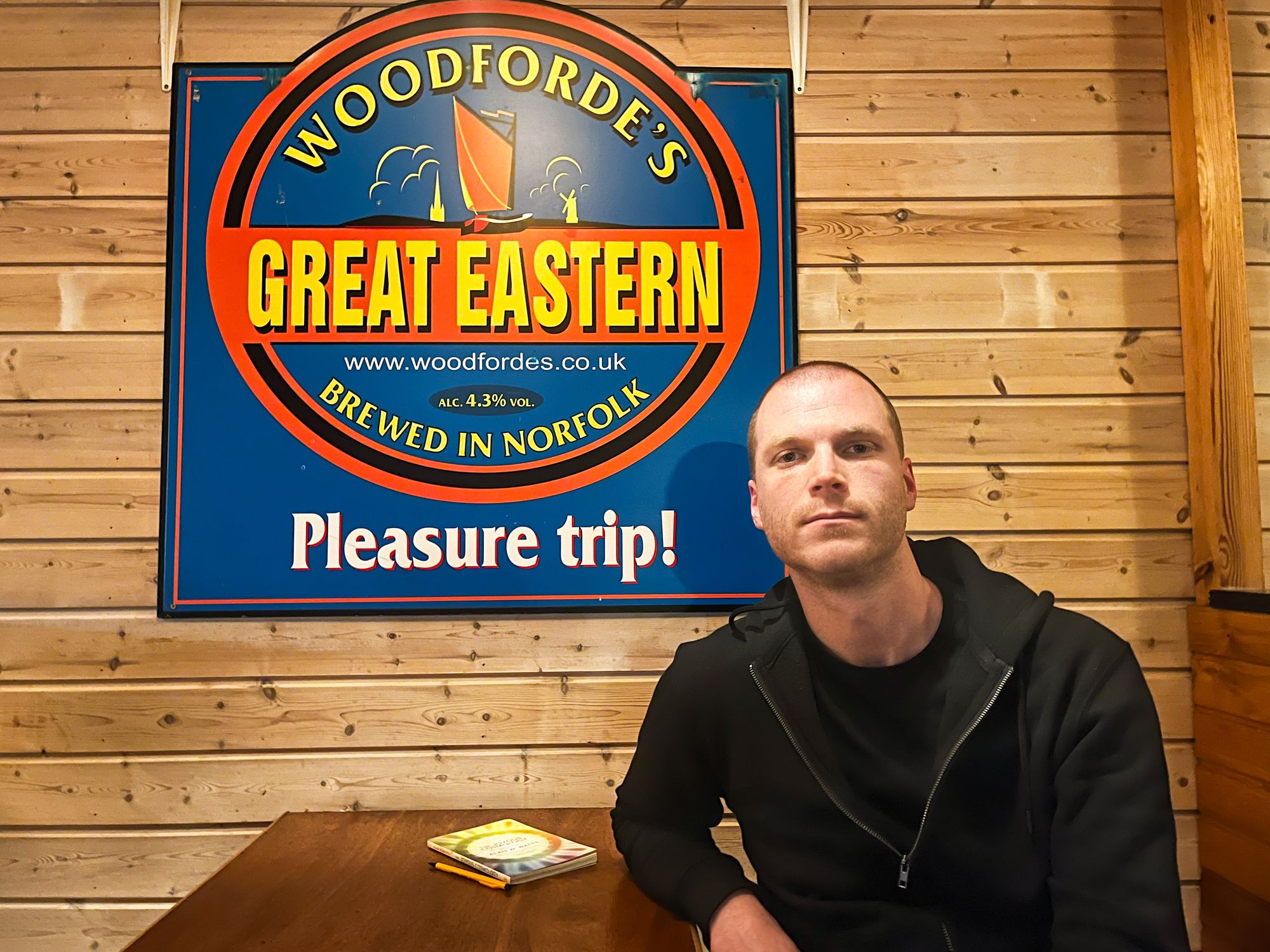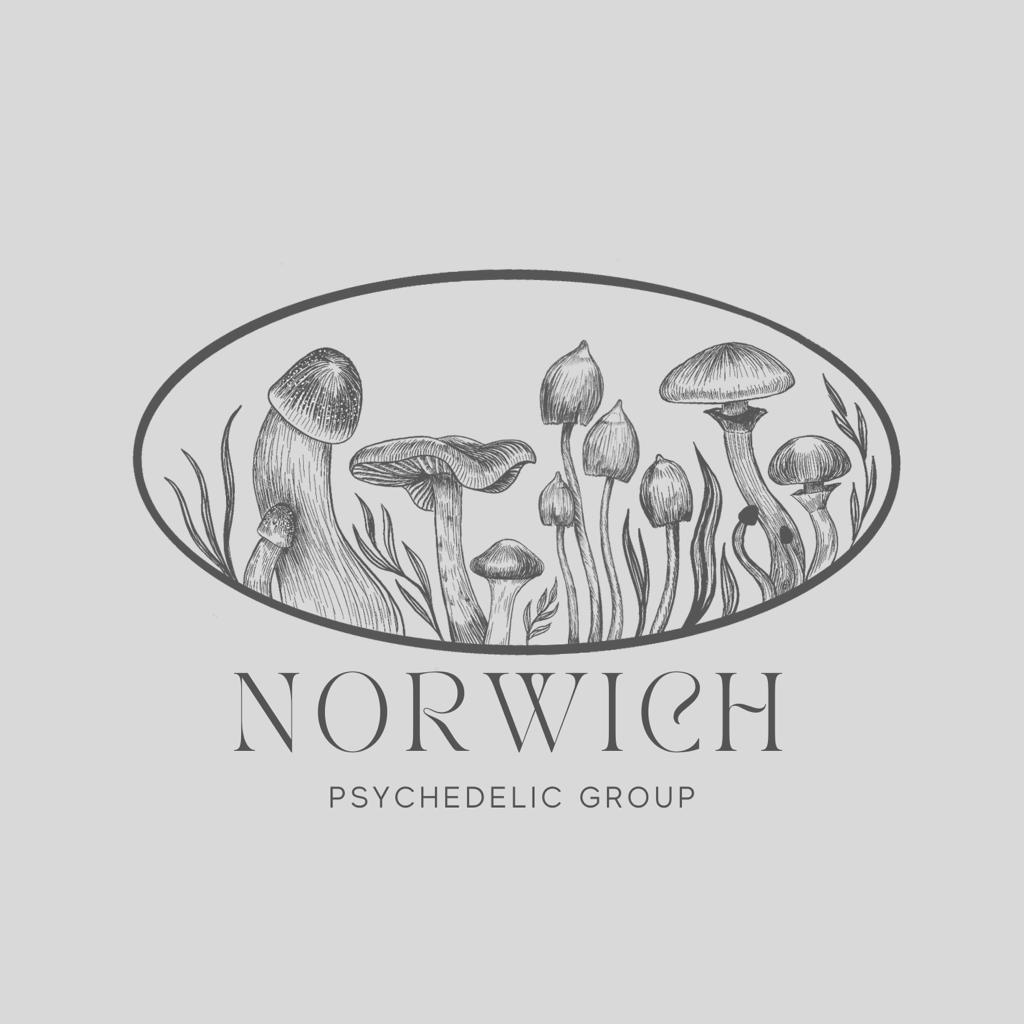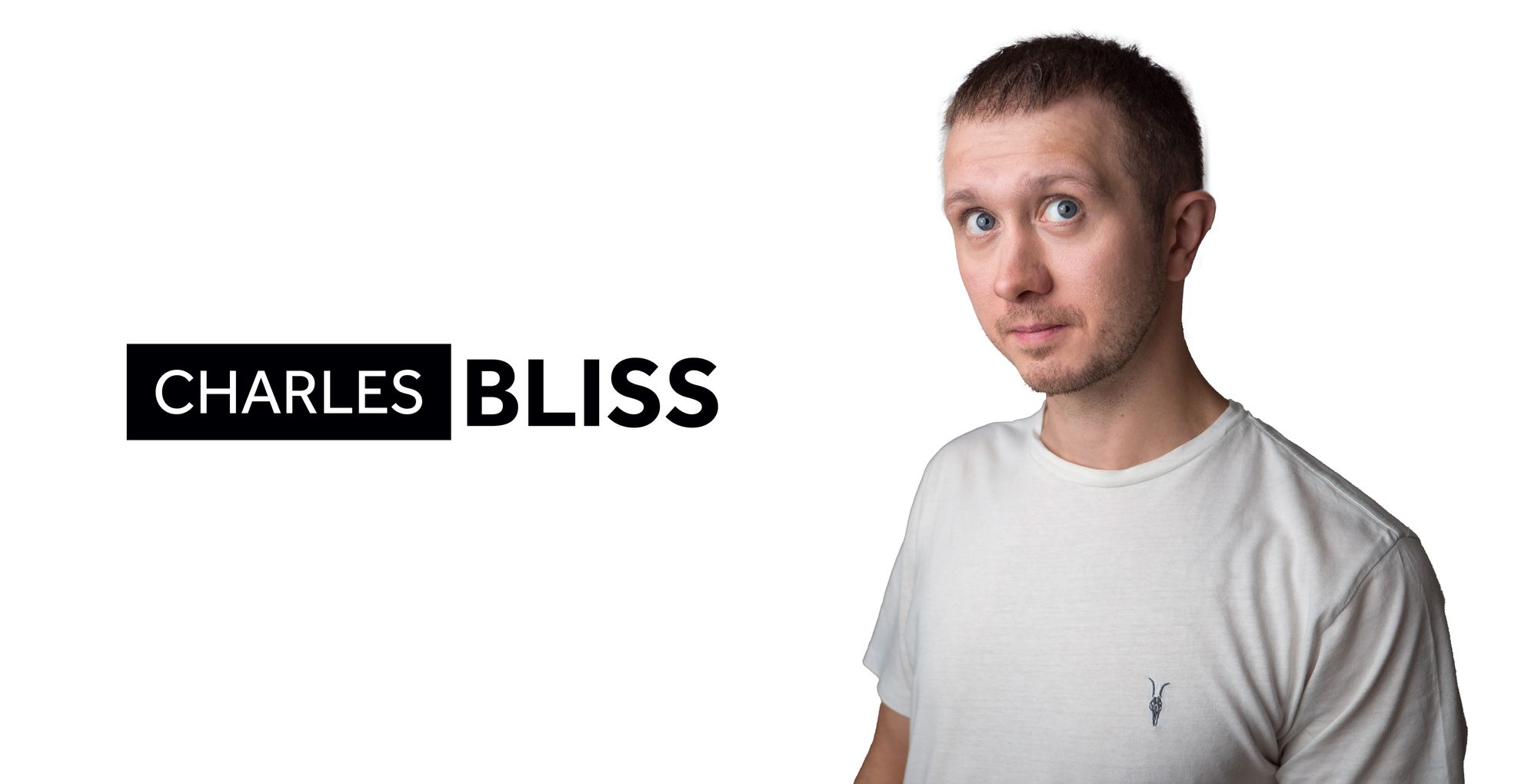Welcome to Afterglow, a newsletter that will change your mind. My name is Charles Bliss and I'm a psychedelic journalist from Norwich, UK.
This week, Norwich Psychedelic Group founder Gary Thompson explains why you should become a member of your local psychedelic community. Get involved.

A sense of isolation often accompanies an interest in psychedelics.
Due to their legal status, the War on Drugs and the countercultural aftermath of the 1960s, psychedelics are still stigmatised in the popular imagination.
And even though the psychedelic renaissance is incrementally proving the efficacy of drugs like psilocybin, LSD, DMT and mescaline to address the mental health crisis, many psychonauts feel they cannot relate to their friends and family about their belief in the healing potential of these compounds for fear of judgment.
“Not only are psychedelics a niche thing, but they’re also demonised,” says Norwich Psychedelic Group founder Gary Thompson. “It’s not like if you were interested in chess or whatever. That’s fine. People might not want to talk about chess because they find it boring, but they won’t necessarily make it illegal and judge you for it.”
With the growing body of scientific evidence demonstrating the potential of psychedelics to treat conditions like anxiety, depression, post-traumatic stress disorder (PTSD) and existential distress, psychedelic communities are sprouting like mushrooms across the UK and beyond, offering safe spaces to explore ideas that many feel they cannot discuss elsewhere.

Gary was inspired to create a local psychedelic group after attending an event from Breaking Convention in 2021. It was the first time he felt on the same wavelength with people that held his views on the medical and spiritual promise of psychedelics, as well as his politics on drug reform.
“It lit a fire under me,” Gary says. “It was brilliant to be able to talk to other people about psychedelics. I wanted that in Norwich.”
Gary became interested in psychedelics after listening to The Joe Rogan Experience and discovering thinkers like Alan Watts and Sam Harris, as well as researchers like Dr Robin Carhart-Harris from the Centre for Psychedelic Research at Imperial College London. Gary also read Professor David Nutt’s book Drugs Without the Hot Air: Minimising the Harms of Legal and Illegal Drugs (2012), which influenced his thinking.
Gary has argued for drug legalisation since he was 18.
“As a teenager, I had issues with drugs being illegal because of what, at the time, I would have called my ‘libertarian attitudes’. I saw the enforcement of the law as disproportionate to the offence. You’re threatening someone with violence, so the application of that law needs to be seriously considered to ensure it is reasonable for the situation. I perceive the risk as low, with no real moral or ethical issue.
“There are situations that can bleed over into harm on others,” he says. “I don't think you should be able to drive high, for example. But criminalising people does more harm than the actual harm that they’re trying to prevent.”
Gary believes in cognitive liberty and the agency of the individual to be able to make their own decisions on matters of their own body, their own consciousness, their own possessions.
“I think there are good arguments to be made on the links with organised crime and how legalisation affects purity, but it’s always a personal freedom issue for me.”
Should everyone be able to do drugs if they want to?
“Yes — for the same reason they should be able to travel,” Gary says. “They both change your sense of self, other people and the world.
“People should be able to explore new experiences — and that is what got me interested in drugs. I’ve been lucky enough to travel fairly well and I see close parallels with the novelty seeking of travel and the novelty seeking of drug use. Ultimately, the value of going to Cuba is a change in my internal state.”
Lester Grinspoon, a Harvard professor of psychiatry, shares this ethos. In a book with James Bakalar, Psychedelic Drugs Reconsidered (1979), he writes: “Psychedelic drugs opened to mass tourism mental territories previously explored only by small parties of particularly intrepid adventurers, mainly religious mystics.”
In How to Change Your Mind (2018), Michael Pollan continues this thread: “One of the things that commends travel, art, nature, work and certain drugs to us is the way these experiences, at their best, block every mental path forward and back, immersing us in the flow of a present that is literally wonderful — wonder being the by-product of precisely the kind of unencumbered first sight, or virginal noticing, to which the adult brain has closed itself.”
Studies have demonstrated that, like travel, psychedelics lead to positive changes in the Big Five personality traits, including increases in openness to experience and reductions in neuroticism. But Gary emphasises that embarking on a trip — physically or metaphysically — is still a matter of personal preference.
“You don’t have to travel. You don’t have to do drugs. It’s not for everyone.”
Next year, Gary will start training as a therapist with a certificate in counselling skills at The Norwich Centre.
“I want to become a psychedelic therapist. That’s my long-term goal.”
He also volunteers with PsyCare UK, a charity that provides welfare and harm reduction services at music festivals like Secret Garden Party, Balter Festival, Boundary Brighton and Noisily.
“Psychedelic first aid involves supporting people through difficult drug experiences,” says Gary. “We don’t try to stop the experience or save them. We sit with them in a non-judgmental, non-directive and compassionate way.”

Launched in March 2022, Norwich Psychedelic Group celebrates the benefits and warns of the risks of psychedelics. At meetings, members discuss the psychological, political and philosophical implications of psychoactive drugs.
“One of the most common interests is the therapeutic use, probably because the clinical research defines the current cultural narrative,” Gary says.
Themes including self-development, spiritual practices, mycology, chemistry and pharmacology are also explored. Everyone is welcome — whether or not they are a seasoned psychonaut or just dipping their toes in the subject.
“There are plenty of people who have joined the group that haven’t taken psychedelics,” Gary says. “They are just interested in the topic.”
Norwich Psychedelic Group also attends events from psychedelic researchers like Dr David Luke and Seed Talks, as well as conferences and festivals, with plans to connect with psychedelic societies from other cities like London, Bristol and Cambridge.
The group, which has almost 200 members, currently hosts social events, a book club, mushroom foraging and wild swimming activities, but Gary says this is just the beginning.
“I want the community to grow from the bottom up,” he says. “I don’t want to dictate what it becomes. This is what the group offers now but it’s very malleable and open to change.
“If someone wants to come along and start yoga and mindfulness events, for example, I actively encourage that.”
The group also provides an opportunity to assimilate psychedelic experiences, which can be isolating, destabilising and even traumatic, alongside being revelatory, transformative and beautiful.
“I think everyone who turns up to the group is beginning to integrate their experiences by finding other people who can relate — that’s an immediate integrative act.
“How do I think of my sense of self, others and the world now that I’ve had this experience, which challenges my usual framework? You can’t just write it off as a weird experience.
“Integration can be done on your own, but for a lot of people the psychedelic experience inspires a desire for connection, which automatically drives them towards others.
“The group will listen to you and talk about your experience. That in itself is useful and therapeutic. It’s a sense-making exercise.”
So, why should people join?
“To participate in a community of like-minded and equally passionate individuals.”
For more information, please visit Norwich Psychedelic Group on MeetUp or join the Discord.

I bought shoes from a drug dealer once.
— PUNS (@ThePunnyWorld) December 3, 2022
I don't know what he laced them with, but I was tripping all day.
🤯 Mind at Large
A breakdown of mind-blowing ideas I encountered this week:
📖 Report – PSYCH released The Psychedelics as Medicine Report: Fourth Edition this week, which offers an overview of psychedelic business, patents and research. The psychedelic healthcare company predicts that, if MDMA and psilocybin become regulated for medical use, the legal psychedelic healthcare market could be worth more than $3 billion by 2026.
🎬 Video – The real risks of psychedelics, explained by an expert | Dr. Matthew Johnson by Big Think.
"Just as a single calamitous incident can have a lasting, crippling impact, so a single intense, propitious experience can have lasting therapeutic effects."
James Fadiman
🫠 Enjoying this newsletter?
Forward to a friend and let them know where they can subscribe.
